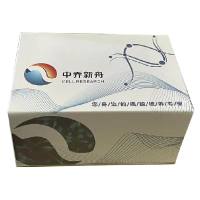Restriction Enzyme Analysis of PCR Products
互联网
553
Progress in single nucleotide polymorphism (SNP) detection technologies has provided information for SNP-based studies, such as identification of candidate genes for the complex genetic diseases, pharmacogenetic analysis, drug development, population genetics, evolutionary studies, and forensic investigations. SNP detection is performed by many methods, including hybridization, allele-specific polymerase chain reaction (PCR), primer extension, oligonucleotide ligation, direct DNA sequencing, and endonuclease cleavage. Each of these methods has its specific advantages and disadvantages. Here we introduce the PCR–restriction fragment length polymorphism (RFLP) method, which has certain advantages over many other techniques used for analysis of SNPs. The PCR-RFLP method allows very rapid, simple, and inexpensive detection of point mutations within the sequences of PCR products. The mutation is discriminated by the specific restriction endonuclease and is identified by gel electrophoresis followed by staining with ethidium bromide. This convenient and simple method is useful in a small basic research study.









